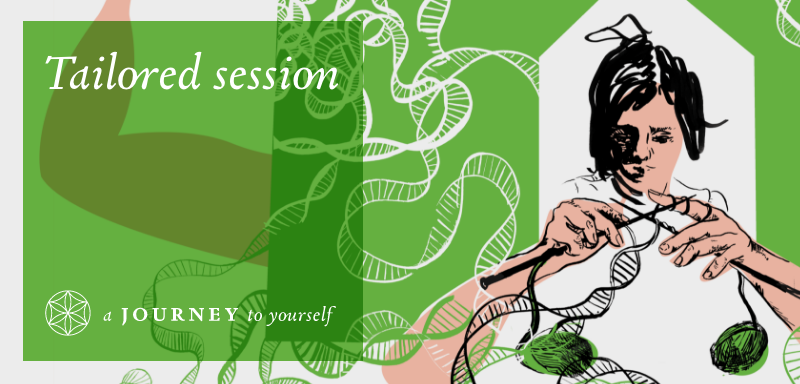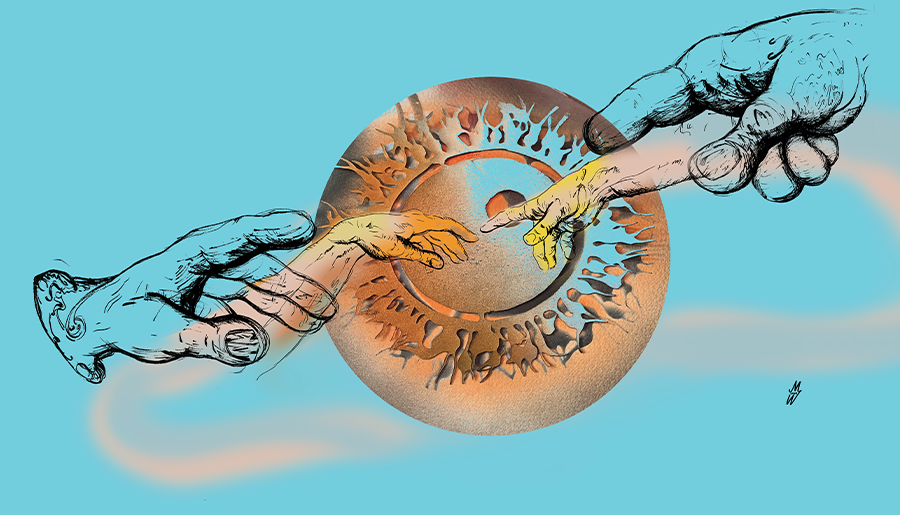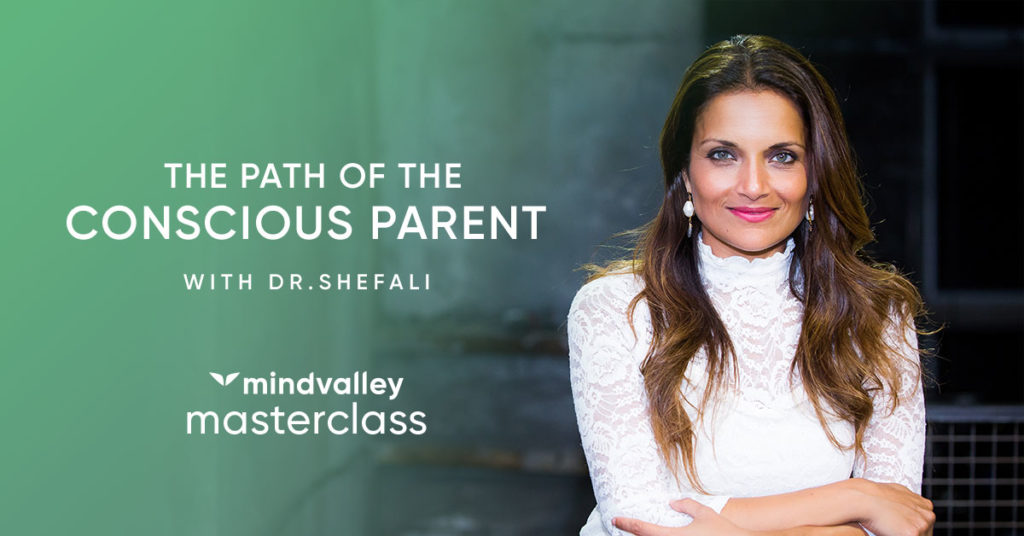The pillar of spirituality is experiencing a connection with a power greater than ourselves. A connection that gives us a sense of acceptance, overwhelming love, guidance, care, comfort, inner joy, and peace. This experience makes us feel alienated from loneliness. This is because even when we are physically alone with ourselves, we feel that there is a force that supports us and is with us all the time, or that we are part of one larger whole.
In this article, you will learn what God, faith, and spirituality have to do with your relationship with your parents.
However, the experience of connecting with a Higher Power is not obvious and easily attainable by everyone. Why is this happening? Why do some of us have no doubts about the existence of God, others have, and still, others completely reject this concept? How is it that faith is enough for some? And why do others need tangible evidence or their own experiences, and still others need authority and scientific dogmas? Of course, like most beliefs in our lives, it also depends on our early childhood experiences.
None of us were created perfect.
However, the message we receive from the outside world from the very first moments of our lives requires us to be perfect. We are to be the perfect baby who doesn’t cry and sleep at night. The teenager who gets the best grades in school. And then the perfect mistress, mother, woman, worker, and the perfect housewife. We are to have a flawless complexion, shiny hair, a perfect fit, and a slim figure. Perfect makeup and outfit. We are to know cooking, plan and have a spiritual lifestyle.
Start each day since dawn, meditate on the terrace in the lotus position, practice yoga, celebrate moments while keeping the house clean, developing your creative potential, improving your qualifications, and organizing children for school. If this is not the case, we feel guilty. We feel inferior or even handicapped in some way. We have a constant feeling that something is wrong with us. This feeling is additionally enhanced by Instagram photos, advertisements, videos, blogs, Facebook posts, books, and guides on personal development or articles in colorful magazines. Our life is to be interesting, joyful, and full of attractions, and we are beautiful and happy.
Although the world at every step tries to convince us otherwise, we know that it is impossible to be perfect in everything. Perfection is just an illusion of our ego. The only thing left for us in this situation is to recognize our own imperfection and come to terms with it. It is only when we recognize our imperfection that we become sufficient. Perfectly imperfect – “I am enough”. And only then we are ready to share our imperfection with others and accept their imperfection. Only this gives us a sense of connection with others. And also with something greater than us – with a Higher Power. A feeling beyond our understanding.
This feeling can be distorted, inhibited or impaired by our childhood experiences.
Mainly as a result of disturbed relations between us and our parents. When, for example, our parents make us believe that we are to be perfect. When they put pressure on us, they make unrealistic demands on us, they require an absolute obedience and the non-questioning of their authority. Or when they condition their love in one way or another. Or perhaps they mistreat us or punish us for their own imperfection.
Parents’ beliefs about spirituality from the moment the child is conceived also influence the child’s attitude to spirituality. The fetus inherits their own beliefs and those of their parents. Also, the parents’ approach to the very birth of a child, whether they want to terminate the pregnancy or give birth to a child, has a huge impact on their future attitude towards spirituality. Whether the pregnancy was wanted or not depends on whether the child will be able to trust God, or whether they will reject him, as their parents rejected them, or whether they will give them the right to exist as they gave them. And whether they would believe in his support and love.
God faith and spirituality.

God faith and spirituality.
The soul itself can also transfer its beliefs about spirituality from its past life experiences. Whether or not it received God’s support in a previous incarnation has a huge impact on its attitude towards it in the current incarnation.
All these experiences can be summarized into three basic situations:
When one of the parents replaces the child with a Higher Power.
For a newborn child, the first experience of a Higher Power is the parents. This is due to the fact that it is literally in their hands that the baby’s entire life is in their hands. And although it apparently does look as if they were gods in their eyes, people differ from the Higher Power in that they are neither perfect nor infallible.
When parents humbly accept this fact, they admit their fallibility. They take responsibility for it. They inform children of their mistakes as soon as they have done something that may have hurt them. In this way, they smoothly shift from their original role as a Higher Power to a lower position. They also do this when they point out to their children a real, all-powerful, infallible, and perfect Higher Power beyond the human world that they themselves trust.
However, when parents do not admit their mistakes, or deliberately put themselves in the role of God through strict and demanding upbringing, or when they use physical, sexual, emotional, or intellectual abuse, they confirm in the child that they are the Higher Power. They communicate to the child with their behavior: “You are dependent on me; I can do whatever I want with you.”
Such an attitude instills in the child the belief that God is a punishing, selfish and degrading being.
And it also undermines the child’s trust in him. This will result in the child rejecting the concept of God in the future. Especially in the understanding of God the Father, because they associates it only with their own father and evokes negative memories.
And when the parent deliberately leaves themself in the role of a Higher Power, the child will either hate them or worship them. It depends on whether the parent’s behavior has made the child feel inferior or superior. They hates their parent when they denied them, raped them, rejected them, judged them, ridiculed them, or blamed them. And they honors when they has difficulty recognizing the parent’s abuse. Thus, it whitens and protects its parent. Both behaviors make it difficult for such a child in adulthood to contact the real Higher Power and causes disturbances in spiritual development.
In turn when the behavior of parents confirms the child in the belief that they is someone better than others, in the future, the child becomes a Higher Power for themself.
They will begin to believe they have the right and the power to do what they want and use others. Such an attitude deprives them of the ability to experience spiritual experiences.
Parents’ abuses against their children can also cause children to blame Higher Power for a lack of support and protection. They will resent their for not defending them against the painful reality and harm done to them by their parents or guardians. Such an attitude will entail a loss of trust in the Higher Power in adulthood and strong resistance to submission to it.
Problems with spirituality are also caused by excessive parental control of the child. Introducing inhumane rules set by parents and, at the same time, not following them by the parents themselves, but requiring their children to obey them. Demanding perfection and perfectionism. Abandoning a child, forcing the child to take care of themself (being their own Higher Power), or lack of information about true spirituality. All of these scenarios will either make it impossible to experience a Higher Power in the future, or they will lose confidence in it, or they will instill in the child the belief that it is not good enough for God to love them.
God faith and spirituality.
When parents are fanatics of some religion.
Religion can become a tool for achieving self-esteem. A way to control your surroundings and a form of relieving inner pain. Religious fanaticism, on the other hand, is a form of addiction. A compulsory process, thanks to which a person can break away from their unbearable reality. From your feelings, thoughts, suffering, and physical qualities. A process that masks their existential pain and therefore becomes their most important value over time. So, they will devote all their time and attention to them.
Religious fanatics are often abusers of their children because they focus all their time and attention on religion rather than on their children. Often neglecting and disregarding their children. They are active in the religious community, study the theology or teachings of their religion, care for the sick or the poor, while their own children remain unnoticed and unsatisfied.
Also they very often abuse the concept of God.
They frighten and threaten children, making them fear God’s punishment. They make their children do what their parents want, using God as a bogeyman. Usually they control their children’s lives and teach them to fear God. The parents use God to force their opinion and implement their will. They make children practice boring religious practices or attend religious classes against their will. They do not teach children to constructively solve problems, but they quote fragments of religious texts that are incomprehensible to children.
Often they do not explain the world to children, acknowledging everything with one sentence “God wanted it so”. They often throw themselves off the responsibility for their lives, constantly sending everything back to God. They make children feel guilty towards God for their problems. The parents make them believe that their wrong attitude towards God is the cause of their problems and abuse. They instill the belief that God is a harsh, punishing, and demanding ruler who requires strict adherence to his rigid rules and principles.
This style of raising children results in a rejection of God and spirituality.
When an official representative of a religion (priest, catechist, or even the conductor of a church choir) commits some kind of abuse against a child.
Abuse by adults who represent a religion is an extremely difficult experience for a child. A child who has been harmed in some way by such a person begins to hate God who allowed what happened. Being used by someone who represents the highest power leads to serious consequences. It manifested in stubborn denial, self-deception, and suppression of feelings. This is accompanied by a huge spiritual crisis. This is because for a child the person who hurt them was someone who represented God.
All of these factors can make it difficult for you to experience a power greater than you.
And also, your difficulty in sharing the truth about who you are with others or accepting from others the truth about who they are. Only when you know your imperfection do you accept yourself as you are – perfectly imperfect. Only then can you open yourself to a sense of connection with your highest power. Recognizing your imperfection enables you to see your worth.
However, when you believe that you are imperfect, you feel inferior and unable to open up to spirituality. You can then consider yourself perfect and not need a Higher Power by becoming one for yourself. Or, believing in your imperfection, recognize that you are not worthy of connection with others and with the Higher Power. You may also experience a sense of great shame at your imperfection which will be responsible for your alienation from others and the Higher Power. In order to have a spiritual experience, you must learn to experience your own reality. A distorted image of oneself and one’s imperfections, or failure to perceive one’s own imperfections, make the relationship with the Higher Power impossible.
Source:
Pia Mellody “Facing Codependence: What It Is, Where It Comes from, How It Sabotages Our Lives” („Toksyczne związki. Anatomia i terapia współuzależnienia.„), Czarna Owca, 2019
Thanks to our partnership with Mindvalley, you can now learn conscious parenting from the best experts in the world.
Discover a new model of parenting Oprah called “Revolutionary” and “Life-changing” so you can create the ideal environment for your children to thrive and blossom into their most authentic self with conscious parenting expert, Dr. Shefali Tsabary.
God faith and spirituality. God faith and spirituality.



